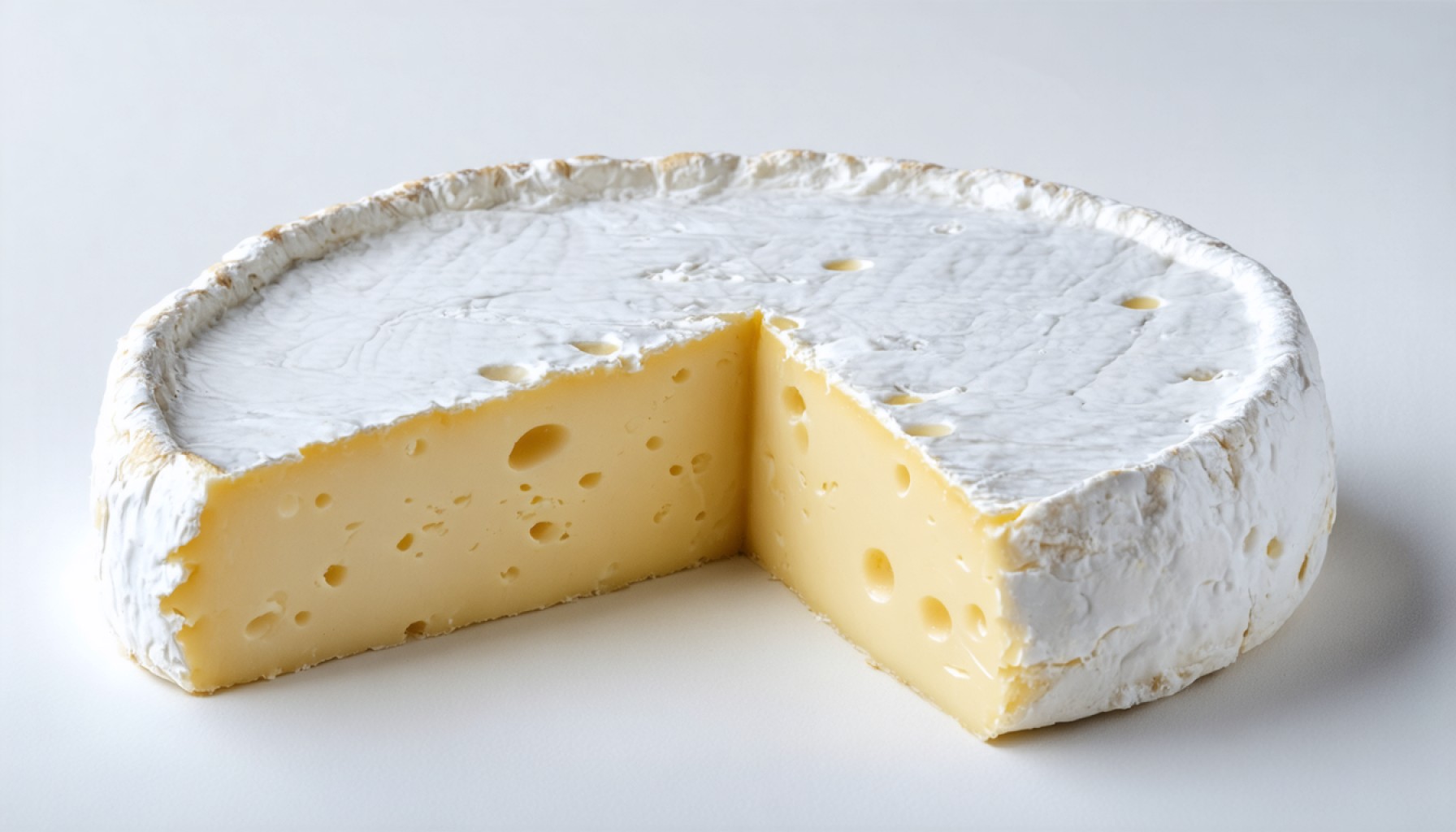If you’re looking for a taste of Greece, Mizithra cheese is a must-try. This lesser-known delicacy has a rich history and is a staple in Greek households. Originating from the sunlit hills of Crete, Mizithra is an ancient cheese with roots tracing back to the days of the Minoan civilization. Revered for its simplicity and distinctive taste, it’s a cheese that’s been loved through the ages.
Mizithra is a fresh cheese often compared to ricotta, boasting a mild yet tangy flavor. When aged, it develops a harder texture and a stronger taste, making it versatile enough to enjoy in a variety of dishes. This cheese is perfect for grating over pasta, mixing into salads, or enjoying as a standalone snack with a drizzle of honey.
To make your own Mizithra at home:
Ingredients:
– 1 liter of goat’s or sheep’s milk
– 200 ml of Greek yogurt
– A pinch of salt
Instructions:
1. Heat the Milk: Pour the milk into a large pot and gradually heat it to 85°C (185°F) without boiling. Stir occasionally to prevent scalding.
2. Add the Yogurt: Remove the pot from heat and slowly whisk in the Greek yogurt until well combined.
3. Curd Formation: Let the mixture rest for about 15 minutes, allowing the curds to form.
4. Drain the Curds: Line a colander with cheesecloth and pour the mixture through it. Gather the cheesecloth’s edges and tie them into a bundle.
5. Press and Chill: Hang the bundle over a bowl to drain for 24 hours, then chill in the refrigerator until firm.
6. Enjoy: Once firm, your homemade Mizithra is ready to be savored as you like!
Embrace the flavors of Greece with Mizithra cheese, a delightful addition to any meal that embodies the essence of the Mediterranean diet.
Discover the Health Benefits of Homemade Mizithra Cheese
Mizithra cheese, a hidden gem of Greek cuisine, invites food enthusiasts to savor its unique flavors and ancient heritage. Made from simple, natural ingredients like goat’s or sheep’s milk and Greek yogurt, this cheese not only offers a taste of Greece but also brings an array of health benefits to your table. Incorporating Mizithra into your diet can contribute to improved health and well-being, thanks to the nutritious value of its core components.
Health Benefits
Rich in Protein:
Goat’s and sheep’s milk, the foundational ingredients in Mizithra, are excellent sources of high-quality protein. Protein plays a crucial role in building and repairing tissues, maintaining muscle mass, and supporting immune function. By enjoying Mizithra cheese, you can naturally increase your protein intake.
Probiotic Goodness:
Greek yogurt, used in crafting Mizithra, is renowned for its probiotic content. Probiotics are beneficial bacteria that promote a healthy gut microbiome, aiding digestion and enhancing nutrient absorption. Including probiotic-rich foods like Mizithra in your diet can support gut health and overall digestive wellness.
Calcium-Rich for Strong Bones:
Both goat’s and sheep’s milk are packed with calcium, an essential mineral for maintaining strong bones and teeth. Regular consumption of calcium-rich foods like Mizithra cheese can contribute to bone health and help prevent conditions such as osteoporosis.
Lower Lactose Content:
For those sensitive to lactose, Mizithra made from goat’s or sheep’s milk is often easier to digest than cow’s milk cheeses. These milks contain less lactose and smaller fat globules, making Mizithra a gentler option for individuals with lactose intolerance.
Heart-Healthy Fats:
While being rich in flavor, goat’s and sheep’s milk also provide heart-healthy fats. These fats, particularly medium-chain fatty acids, are more efficiently metabolized by the body, providing quick energy without significantly impacting cholesterol levels.
Incorporating Mizithra into Your Diet
Mizithra’s versatile nature makes it a delightful addition to a variety of dishes. Its fresh, mild flavor complements salads, pastas, and even desserts when paired with a drizzle of honey. When aged, its sharper, robust taste makes it perfect for grating over hot pasta or mixing into hearty Mediterranean-inspired meals.
Not only is homemade Mizithra cheese a nod to traditional Greek culinary practices, but it also embraces the healthful principles of the Mediterranean diet. This diet, acclaimed for its emphasis on whole foods and balanced nutrition, is associated with numerous health benefits, including reduced risk of heart disease and enhanced longevity.
By indulging in Mizithra, you are not only experiencing a taste of Greece’s rich culinary history but also supporting a healthier lifestyle. Whether enjoyed fresh or aged, Mizithra cheese serves as a nourishing, versatile, and delicious addition to your diet, embodying the best of Mediterranean flavors and health benefits.
The Hidden Gem of Greek Cuisine: Discovering Mizithra Cheese
Exploring New Dimensions of Mizithra Cheese
Mizithra cheese offers more than just a flavorful experience; it provides a glimpse into Greek culture and culinary traditions. As we delve deeper into this cheese, new aspects continue to emerge, capturing the attention of culinary enthusiasts and chefs worldwide. From innovative recipes to eco-friendly production practices, Mizithra cheese is stepping into the global spotlight.
Pros and Cons of Mizithra Cheese
Pros:
– Versatile Culinary Uses: Whether fresh or aged, Mizithra can complement a variety of dishes, from salads to pasta.
– Natural and Authentic: Made from basic ingredients like goat or sheep’s milk, Mizithra is free from artificial additives.
– Robust Flavors: It offers a complex taste profile, evolving from mild to bold as it ages.
Cons:
– Limited Availability: Outside Greece, it might be challenging to find Mizithra in local stores.
– Special Diet Considerations: Those with lactose intolerance should consume it with caution.
Innovations in Mizithra Cheese Production
With growing environmental consciousness, producers are exploring sustainable options for Mizithra production. Some dairy farms in Greece have integrated renewable energy sources to power their operations, reducing their carbon footprint. Additionally, advancements in packaging are being trialed to prolong shelf life while maintaining freshness without compromising the environment.
Mizithra: A Comparison with Other Cheeses
When comparing Mizithra to cheeses like ricotta or feta, each has its unique attributes:
– Ricotta: Both are soft cheeses, but ricotta is smoother and creamier, whereas fresh Mizithra boasts a tangy edge.
– Feta: While feta is brined, imparting a salty, crumbly texture, Mizithra remains softer and less salty when fresh.
Trends in Mizithra Consumption
Recently, Mizithra has gained traction among health-conscious consumers seeking nutrient-rich, authentic food options. Its inclusion in Mediterranean diet plans underscores its nutritional benefits alongside its distinctive flavor.
Predictions for the Future of Mizithra Cheese
As global palates expand, experts anticipate a rise in Mizithra’s popularity due to its versatile nature and alignment with sustainable eating practices. Efforts to increase export opportunities are underway, potentially bringing this traditional Greek delight to more international tables.
Incorporating Mizithra Cheese into Diverse Dishes
Innovative culinary uses for Mizithra have emerged, such as using aged Mizithra as a substitute for parmesan in risottos or incorporating fresh Mizithra into dessert recipes for a unique twist.
For more information on Greek cheeses and traditional recipes, visit Visit Greece.
Mizithra cheese stands as a testament to Greece’s rich culinary heritage, offering both a taste of tradition and a promise of culinary exploration. Whether enjoyed alone or as part of a dish, Mizithra remains a beloved favorite, inviting food lovers to explore its diverse possibilities.








